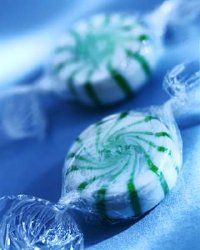
The problem of halitosis, or bad breath, has plagued humankind for centuries. To conquer bad breath, the ancient Greeks reputedly used home remedies like rinsing with white wine, anise seed, and myrrh, while the Italians mixed up a mouthwash of sage, cinnamon, juniper seeds, root of cypress, and rosemary leaves, according to the Academy of General Dentistry.
Today, of course, Americans still worry that their breath smells bad (and swish capful after capful of mouthwashes that often contain little more than alcohol and flavoring to fix it). Indeed, New York Times health columnist Jane E. Brody has written that she receives more questions about bad breath than about any other common medical problem. Fortunately, this article contains all the information you need to know about bad breath, from where it starts to home remedies that will help keep your mouth smelling fresh. Let's begin with a closer look at the problem.
Advertisement
Maybe one explanation for this preoccupation with oral odor is the simple fact that you can't really tell whether you've got bad breath. This is a time when you have to depend on the honesty and kindness of friends to let you know if your breath smells bad. If you're on your way to that important meeting and you simply must know if your breath will precede you through the door, try breathing into a handkerchief or running floss between your teeth and taking a sniff.
Fixing bad breath depends on what's causing it. In 80 to 90 percent of cases, it's due to something in the mouth. Most often, bad breath is the result of nothing more serious than a dirty mouth. Plaque, the nearly invisible film of bacteria that's constantly forming in your mouth, is often responsible. Another possible source of stink can be decaying food that's trapped between teeth.
Persistent bad breath may be due to a treatable dental problem, such as an undiagnosed cavity or periodontal (gum) disease. Sometimes a broken filling can trap food particles. If you visit the dentist and no such problem is found, however, you may want to investigate further and talk to your physician about other possible causes. Occasionally, ongoing bad breath is due to something in the respiratory tract (such as a sinus or lung infection) or gastrointestinal tract or to a systemic (body-wide) condition. Diabetes, for example, can give the breath an unpleasant chemical smell.
Of course, what you eat can contribute to bad breath, too. The strong odors of foods like garlic, onions, and alcohol are carried through the bloodstream and exhaled by the lungs. Another big loser when it comes to turning your breath sour, and harming your health, is tobacco.
No matter how hard you try to clean your teeth and watch your diet, we all have an epidsode of bad breath occasionally. Move on to the next section for home remedies to keep your breath at its best.
For information on other unpleasant or embarrassing conditions, try the following links:
- To see all of our home remedies and the conditions they treat, go to our main Home Remedies page.
- To learn how to treat burping, see Home Remedies for Burping.
- Home Remedies for Body Odor includes tried-and-true measures for staying odor-free.
- If you suffer from heart burn, read the tips presented in Home Remedies for Heartburn.
This information is solely for informational purposes. IT IS NOT INTENDED TO PROVIDE MEDICAL ADVICE. Neither the Editors of Consumer Guide (R), Publications International, Ltd., the author nor publisher take responsibility for any possible consequences from any treatment, procedure, exercise, dietary modification, action or application of medication which results from reading or following the information contained in this information. The publication of this information does not constitute the practice of medicine, and this information does not replace the advice of your physician or other health care provider. Before undertaking any course of treatment, the reader must seek the advice of their physician or other health care provider.
Advertisement
